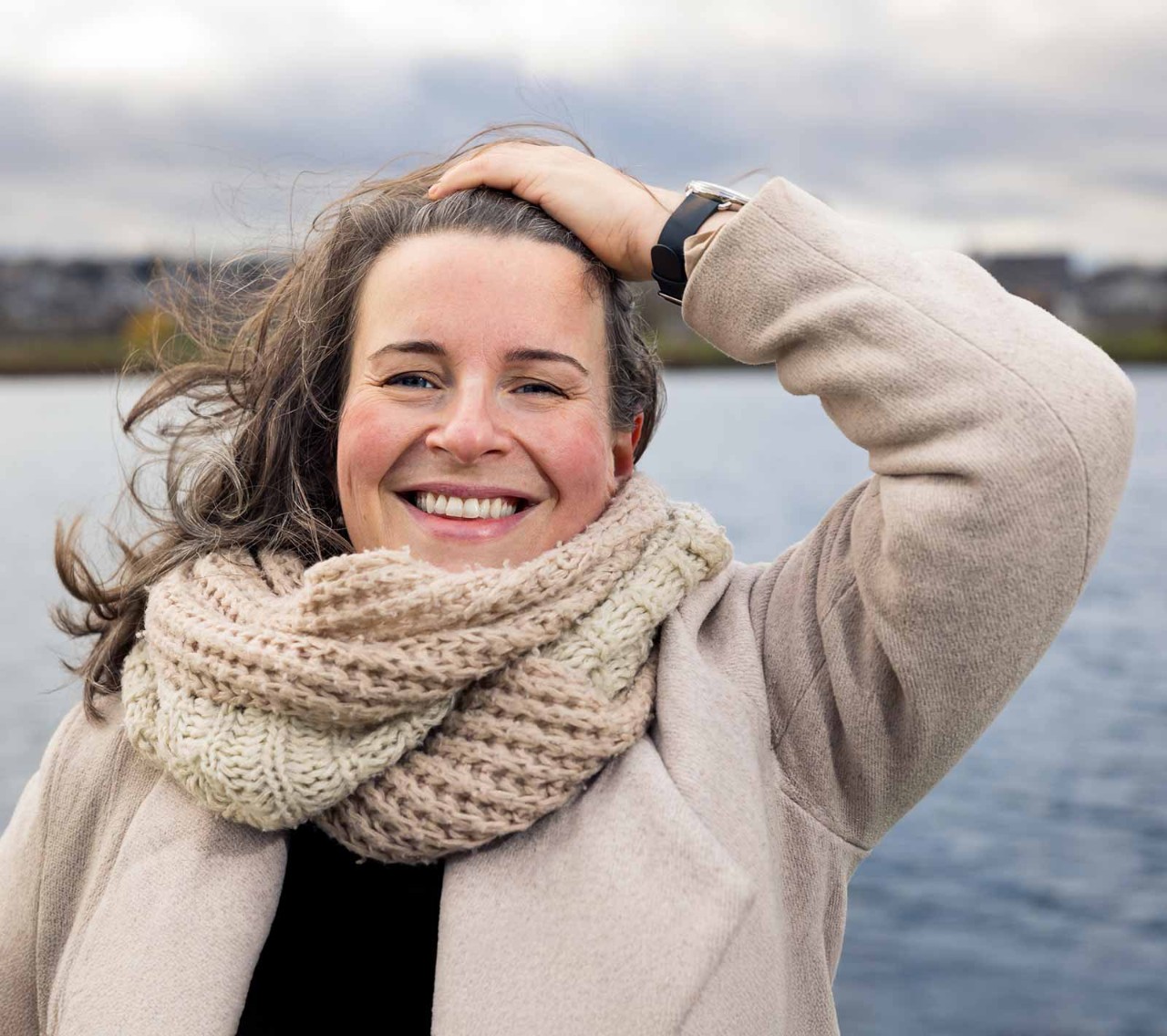
No two days are the same for Chandni Sony FCCA, who has a busy internal tax role at EY. In her job, she provides member firms across EY’s network with the documentation they need for their tax compliance. She’s constantly interacting with people in different locations, handling queries and processing large volumes of data and information.
This might sound like skilled but straightforward work, but Sony’s working life is complicated by a factor that doesn’t apply to most people: she is registered blind.
Sony suffers from a degenerative eye condition called retinitis pigmentosa and lost most of her vision when she was still a teenager. Now she can only distinguish between light and dark. To work, she uses screen-reading software called JAWS, which converts information into speech output.
‘When I go into a meeting, I’m very alert. I listen to everything’
The software, which she controls with her keyboard, enables her to send and receive emails, read documents and navigate spreadsheets. ‘I can touch type,’ she says, ‘and I pretty much know the keyboard shortcuts for everything.’
Listening to a robotic voice all day long can be draining, Sony admits, but the software allows her to be efficient. In addition to using JAWS, she relies heavily on her own memory.
‘As a blind person, you can’t rely on visual things,’ she explains. ‘So you develop a habit of memorising. I retain a lot of information.’ She’s also an excellent listener. ‘When I go into a meeting, I’m very alert,’ she says. ‘I listen to everything.’
Overcoming obstacles
Despite knowing from a young age that she would lose her sight, Sony was determined to pursue her ambition of becoming a professional accountant.
‘I’ve always been passionate about numbers,’ she says, ‘but when I told people that I wanted to be an accountant, they would tell me that as someone who doesn’t have good vision, I would really struggle in the profession.’
But being reminded of the obstacles only strengthened Sony’s resolve: ‘It gave me the drive to say, “Well, I’m going to prove to you that I can be an accountant”.’
‘Until you accept yourself, nobody else can accept you’
Sony studied accounting and finance at the London School of Economics and Political Science. As a student, she also did an internship in the finance department of investment bank Lehman Brothers, which she describes as a ‘fantastic experience’.
Although Lehman Brothers offered her a graduate position, she opted instead to join the graduate scheme of Dutch bank ABN AMRO because she liked the structure of the scheme. It turned out to be a wise choice since Lehman Brothers was to collapse three years later, amid the global financial crisis. ‘Looking back, I definitely made the right decision,’ says Sony.
Exam assistance
At ABN AMRO, she chose to study the ACCA qualification because it offered a broad range of career options. To sit her exams, Sony used magnified print to access the content, as she still had some vision left at that time. She was also awarded extra time by ACCA and had a scribe who could read out information or help her write the answers, although, in practice, she wrote most of the answers herself.
Sony then joined the direct tax compliance team of the Royal Bank of Scotland (RBS), which had bought part of ABN AMRO the previous year. After eight years with the bank, she decided to try life on the other side of the fence, so she joined HMRC as a corporate tax specialist. The role involved doing risk assessments of companies’ tax returns to see if an inquiry was needed. It wasn’t long before she was lured away from the public sector, however, with the opportunity to work for EY.
‘Travelling isn’t just about seeing things’
The firm has been a highly supportive employer to Sony from the start. ‘They’ve made my experience since day one absolutely brilliant,’ she says. ‘I have my own set desk and all the staff know me. As soon as I walk through the door, the security staff take me to the lift. I have two laptops – one for home and one for the office. And I’m not worried how my team members will react if I say, “These are my challenges, can you help me?”’
Her advice for other employers on supporting staff members who are visually impaired is to ask the individuals themselves the best way to help them. It’s also important to remember that every person with a disability is an individual, she says, and has their own individual needs.
Finding acceptance
Acceptance is how Sony has coped with the psychological trauma of progressively losing her vision. ‘Once you accept it, it becomes a lot easier,’ she says. ‘Until you accept yourself, nobody else can accept you.’ Understandably, there have been moments when she has felt down, but her approach has always been to say: ‘You’ve had your share of feeling sorry for yourself. Now it’s time to get up and move on.’
This positive outlook enables Sony to live life to the full. She’s an enthusiastic tandem cyclist and enjoys cross-country skiing and walking. She also loves travelling, saying: ‘Travelling isn’t just about seeing things. It’s about experiencing the culture and food, and meeting people.’
In the future, Sony wants to keep progressing her career in tax, which might involve taking an overseas role. ‘What I like about tax is that rules change all the time, and you are always dealing with new issues,’ she says. ‘The data is changing, the world is changing, and tax will keep evolving.’


